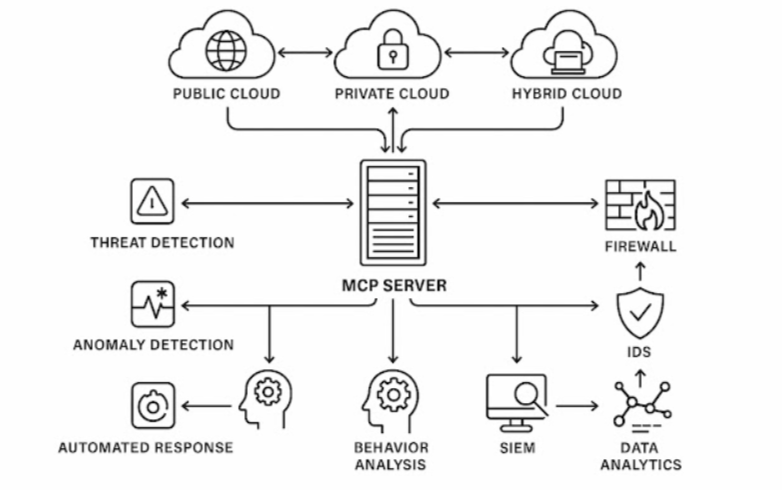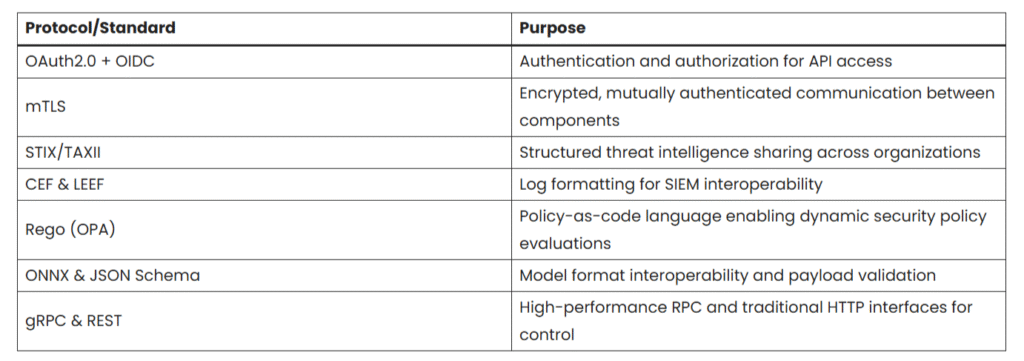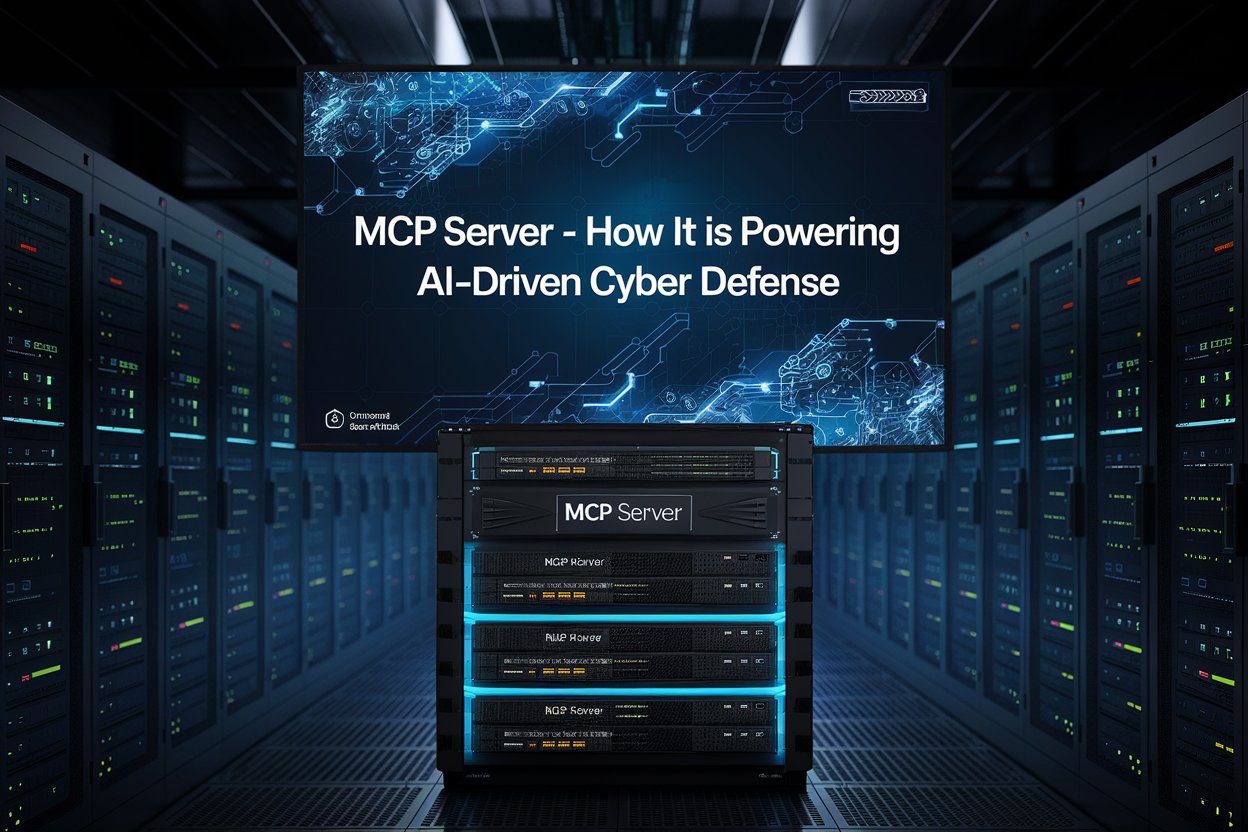What is MCP Server—How it is Powering AI-Driven Cyber Defense
In this increasingly changing cybersecurity environment, businesses are confronted with increasingly sophisticated threats that conventional security solutions find hard to combat. Additionally, MCP Server AI cyber defense is a game-changing method for automated threat detection and response.
Moreover, Model Context Protocol (MCP) servers are also revolutionizing artificial intelligence integration with cybersecurity infrastructure in a bid to create intelligent defense mechanisms that respond in real time when fresh threats are on the scene.
What is an MCP server?
Model Context Protocol (MCP) servers are standardized communication bridges that allow AI models to communicate easily with external tools and external databases, as well as security applications. Additionally, such servers provide a single interface whereby various cybersecurity systems are able to engage effectively within AI orchestration.
Main Components of MCP Architecture
MCP Server artificial intelligence cyber security solutions typically include:
Protocol Layer: Adds standardization in communicating between security tools and AI models
Resource Management: Controls access to information and integration with tools efficiently
Security Orchestration: coordinates multiple security operations simultaneously
Real-time Processing: Provides real-time threat analysis and response

How MCP Servers Power AI-Driven Cyber Defense
1-Automated Detection and Analysis of Threats
MCP servers enable AI systems to automatically analyze vast amounts of security data from multiple sources. Consequently, they can identify patterns and anomalies that human analysts might miss. Additionally, these systems process threat intelligence feeds, network logs, and behavioral data simultaneously.
2-Dynamic Enforcement of Security Policy
Through the MCP Server AI cyber defense capabilities, organizations can implement adaptive security policies that evolve based on threat landscape changes. Furthermore, these systems automatically adjust access controls, firewall rules, and monitoring parameters without manual intervention.
3-Intelligent Incident Response
When security threats are detected, MCP servers synchronize automatic action responses amongst several security solutions. Further, compromised computers can be isolated within a few seconds when threat detection is initiated by gathering forensic information.
4-Improved Security Operations Center (SOC) Productivity
Artificial intelligence-driven MCP servers support security analysts with smart recommendations as well as routine task automation. Moreover, MCP servers support prioritization of alerts based on risk severity level, coupled with business effect.
Popular MCP Server Tools in Cybersecurity
Several organizations have developed specialized MCP Server AI cyber defense tools:
Cyware MCP Server
- Purpose-built for generative AI-native workflows
- Seamlessly integrates threat intelligence with security operations
- Enables automated threat hunting and incident response
SOCRadar MCP Server
- Transforms AI assistants into cybersecurity analysts
- Manages complex security tasks through natural language processing
- Conducts automated threat investigations and incident response
Security-Focused MCP Collections
- SQLMap Integration: Automated SQL injection testing
- NMAP Integration: Intelligent network reconnaissance
- FFUF Integration: Advanced fuzzing capabilities
- Masscan Integration: High-speed port scanning
Protocols and Standards

Benefits of Implementing the MCP Server AI Cyber Defense
Scalability and Efficiency
Organizations can process significantly more security events without proportionally increasing staff. Moreover, automated analysis reduces mean time to detection (MTTD) and mean time to response (MTTR).
Cost Effectiveness
By automating routine security tasks, companies can optimize their cybersecurity investments while improving overall security posture. Additionally, reduced false positives minimize analyst fatigue and improve operational efficiency.
Adaptive Defense Capabilities
MCP Server AI cyber defense systems continuously learn from new threats and adapt their detection algorithms accordingly. Furthermore, they can predict attack patterns and proactively strengthen defensive measures.
How OraSec Enhances MCP Server Security
Businesses incorporating MCP Server AI cyber defense solutions enjoy ultimate security verification by receiving penetration testing services from security professionals. OraSec offers customized security audits that expose weaknesses in defense solutions based on artificial intelligence before cyber attackers have a chance.
OraSec penetration testing solutions enable organizations to:
- Authenticate MCP server settings and security controls
- Identify potential attack vectors in AI-integrated security systems
- Strengthen Overall Cybersecurity Position with Insider
- Knowledge Compliance with industry security standards
With experience in hardening security defenses for over 400 businesses worldwide, OraSec’s veteran pentesters make actionable recommendations that support MCP server installations.
Conclusion
MCP Server AI cyber defense systems are revolutionizing cybersecurity by enabling intelligent, automated threat detection and response capabilities. Moreover, these systems provide organizations with scalable, efficient security solutions that adapt to evolving threat landscapes. However, successful implementation requires careful attention to security configuration and ongoing vulnerability management.
Organizations considering MCP server deployment should partner with experienced cybersecurity professionals to ensure proper implementation and security validation. Additionally, regular security assessments help maintain optimal protection as these AI-driven systems continue to evolve.
Ready to strengthen your cybersecurity posture? Consider implementing comprehensive security assessments alongside your AI-driven defense systems to ensure maximum protection against emerging threats.
